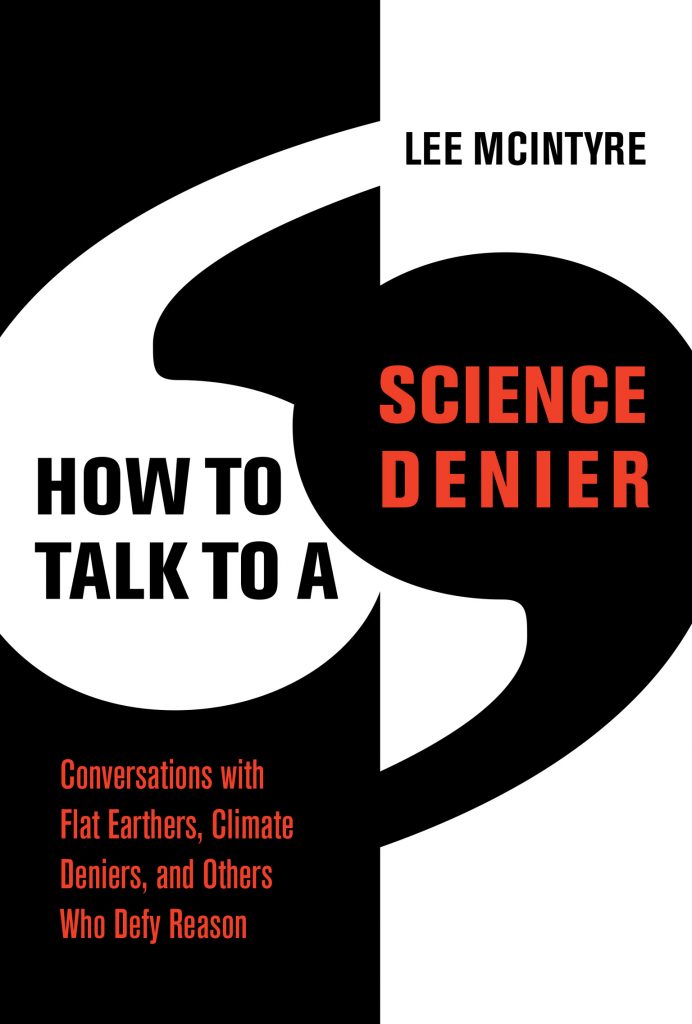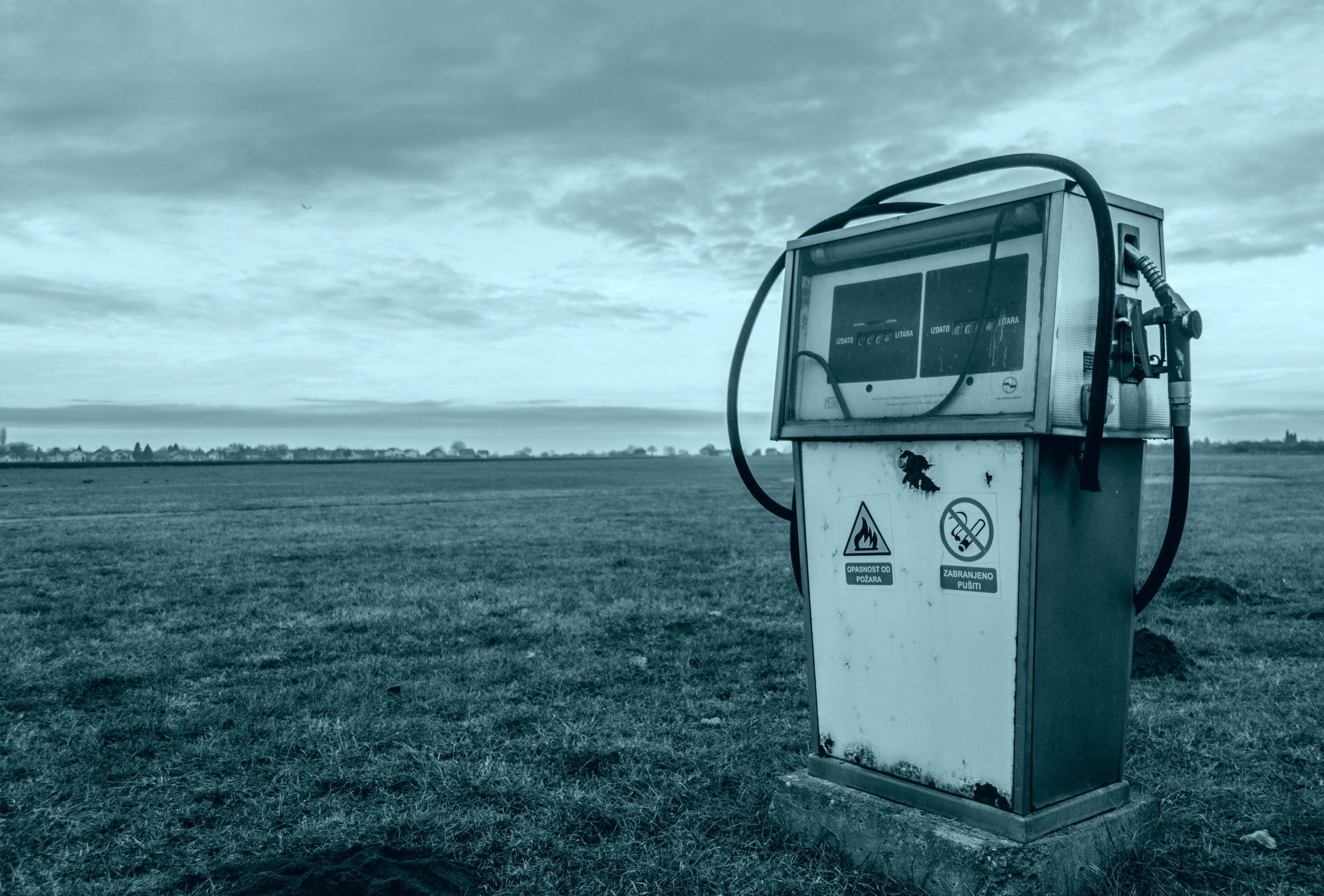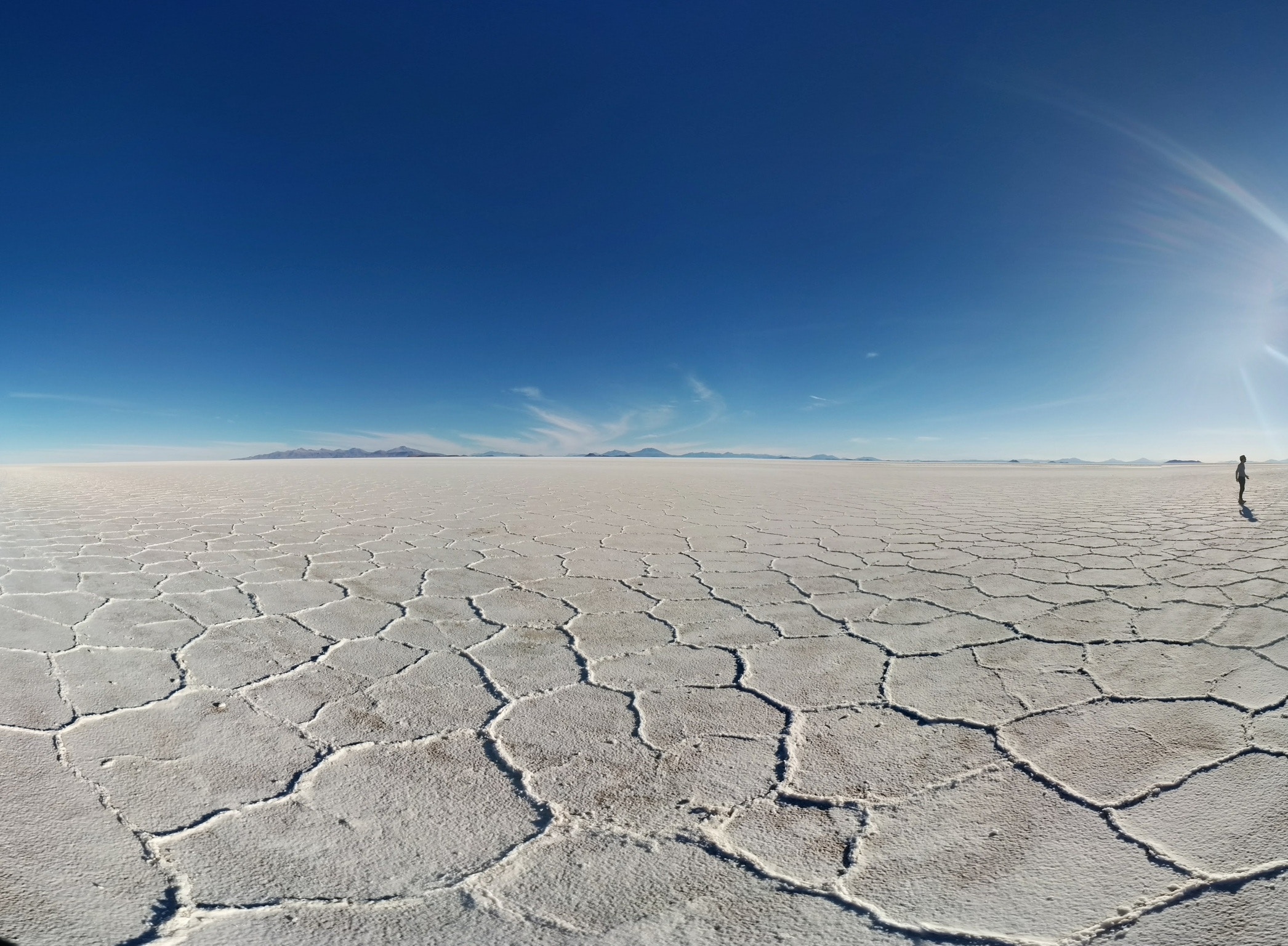Climate change is a hoax. Coronavirus is a conspiracy. Vaccines are bad for you. The Earth is flat. These are just some examples of common storylines peddled by science deniers and which we may have come across at some point in our daily encounters or social media meanderings.
But, what do these apparently disconnected rejections of scientific evidence have in common? According to Lee McIntyre, all denialist reasoning follows common patterns and includes cherry-picking evidence, relying on conspiracy theories and fake experts, engaging in illogical reasoning and insisting that science must be perfect.
Yet McIntyre doesn’t just stop at identifying science deniers and their reasoning (or lack thereof). In his book, How to Talk to a Science Denier, McIntyre gives the reader a set of tools and recommendations on how to engage with them effectively and nurture a vital ingredient for constructive dialogue: trust. Because science deniers don’t suffer from a lack of evidence to choose from, but rather a lack of trust in the sources providing that evidence.
As we continue to march through the “post-truth era”, where objective facts are less influential in shaping public opinion than appeals to emotion and personal belief, science denial can have far-ranging effects on collective wellbeing. Nowhere is this more evident than in the field of climate change and pandemics.
From vaccine skeptics to climate change deniers, “We have to learn how to communicate about issues in a way that goes directly to the heart of why deniers hold their false beliefs in the first place, which sometimes has nothing to do with facts,” says McIntyre.

What inspired you to write “How to Talk to Science Deniers” and why do you think it is important to engage them in constructive conversation?
I had been studying science denial for about 20 years, thinking about the theory behind it. Then I learned of a “Flat Earth” convention and I just had to go! The experience was amazing. There were 650 Flat Earthers there and I got to talk to them.
What I learned is that you can talk to people who disagree with you about facts, but the most important thing is to be calm and respectful, and listen to them. Their disbelief in scientific conclusions is not really based on evidence (how could it be?) but rather distrust of scientists and others who are offering truthful evidence. This situation was created by disinformation and conspiracy theories. By talking with deniers you can get them to listen and this is the first step to changing minds.
What arguments and approaches do climate change deniers, vaccine skeptics and science deniers in general use?
The reasoning strategy behind all science denial is virtually the same. Years ago a few cognitive scientists identified a five step pattern behind denialist reasoning: cherry picking evidence, belief in conspiracy theories, illogical reasoning, reliance on fake experts, and belief that science has to be perfect. You find this across all kinds of science deniers, from vaccine to climate deniers. All of them.
What role does the “scientific method” and “reason” play in forming their beliefs?
Scientific method, and scientific reasoning in general, plays little in forming their beliefs. Scientists are taught to form their beliefs based on evidence, and when the evidence changes their belief changes. This is precisely what a science denier does not do. They hold their beliefs no matter the evidence and generally refuse to say what refuting evidence might cause them to change their mind. This is a sign that they are not reasoning scientifically.
The word skepticism is often used by science deniers. However, skepticism is also a fundamental part of the scientific process of discovery. What does the word really mean and how has it been co-opted?
Science deniers love to think of themselves as ‘skeptics’ because it sounds so reasonable. And in some sense they are skeptics, but it is a toxic form of skepticism. True skeptics – scientific skeptics – have learned to balance their skepticism against open mindedness. They are open to new evidence and always willing to test what they believe against experience. When the data show that their belief is wrong they give up the belief.
Science deniers co-opt the word ‘skepticism’ without really understanding it. They are ‘cafeteria skeptics’. They pick and choose what they will believe and what they won’t, usually on the basis of what fits with a foregone conclusion. That is not at all scientific. They have a double standard of doubt. They accept the things they want to believe with no evidence, and they reject what they don’t want to believe no matter the evidence. That isn’t skepticism.
In the field of climate science we currently have access to an unprecedented body of scientific evidence about ongoing planetary changes, what is causing them and what needs to be done. At the same time, there continues to be a strong current of climate science denial which, among other things, fuels inaction. In your experience what propels science denial and what is the difference between disinformation and misinformation?
Climate denial is propelled by a steady stream of disinformation from people whose interests are served by getting others to disbelieve the facts about global warming. The fossil fuel companies have put a lot of money into this over the years, with the goal of getting people to think there is a scientific controversy even when there’s not. They insist on 100% proof, which you can never get in science. Tobacco companies in the 1950s used the same exact tactics when they wanted to raise doubts about whether smoking caused lung cancer so that they could continue to sell cigarettes.
Doubt leads to inaction, and inaction is all you need sometimes. There is a crucial difference between misinformation and disinformation. Misinformation is a mistake, but disinformation is intentional. It is part of a deliberate campaign to raise doubt where there is none. Climate denial is not an accident, it is a lie.
In relation to societal issues such as climate change and pandemics collective action is key and getting deniers to reconsider their positions becomes a priority. Is there any evidence to show that you can change people’s views and bring science and evidence-based knowledge back to the foreground?
Yes, there is a brilliant study by Cornelia Betsch and Philipp Schmid in the June, 2019, issue of Nature Human Behaviour, which shows that there are two methods for getting science deniers to overcome their false beliefs.
One is called “content rebuttal” and it is when scientists can use the facts to debunk false beliefs. The other is called “technique rebuttal” and this can be used by laypeople to attack the flawed reasoning strategy used by science deniers. Both methods are equally effective and there is no additive effect. This is great news! It means that everyone can play a role in fighting science denial.
What has the pandemic and anti-vaccination sentiment taught us about engaging with science denial and can any of these lessons inform climate science communication?
The anti-vaxx ‘infodemic’ was a tragedy and demonstrates quite clearly what the stakes are in fighting science denial. Denialism can kill. What we learned from the pandemic is that denialist beliefs are deeply embedded. It’s not just what someone happens to believe but in some sense becomes who they are. It is part of their identity or ideology.
This is the result of disinformation, which is intended not just to feed you false information but to polarize you into thinking that people on the other side are untrustworthy and in some sense your enemy. I think this shows quite clearly that trying to fight climate denial merely with facts isn’t going to be sufficient. We have to recognize that some deniers will not change their factual beliefs even when their lives are at stake.
This is a good metaphor for the climate crisis, where the stakes are the same, but just over a longer timeline. So we have to learn how to communicate climate issues in a way that goes directly to the heart of why deniers hold their false beliefs in the first place, which sometimes has nothing to do with ‘facts’. I discuss this strategy at length in my book How to Talk to a Science Denier.
How can scientists and professionals involved in climate change communication spread scientific knowledge and information in a way that will also be effective with deniers and avoid polarization into “us-and-them” camps?
Sharing facts is certainly necessary but also insufficient. Why? Because the primary problem with deniers is not doubt but distrust. Why would facts make any difference to them if they don’t trust the people who are sharing them? They’ve been brainwashed into thinking that scientists are part of a liberal elite and that the evidence about climate change is part of a campaign of political persuasion.
Although it is important to avoid polarizing them more, we must remember that they were already polarized before engaging with them! The best approach is to have as many face-to-face encounters with deniers as possible. In person conversation is the best possible way to overcome distrust. I often think that most deniers who demonize scientists have never actually met a scientist. If they did, they might just learn that scientists can be warm and pleasant human beings. That would do more to convince deniers than any chart or graph you might have in your pocket.

Lee McIntyre is a research fellow at the Center for Philosophy and History of Science at Boston University, Massachusetts, and author of How to Talk to a Science Denier: Conversations With Flat Earthers, Climate Deniers, and Others Who Defy Reason.
Photo by Rick Bern.






